Hi,
i wonder if anyone else is put off by the definition of atheism used on this site (and elsewhere): "the lack of a belief in a god or gods"?
I do not believe/think/feel/experience that I "lack" belief. Do you? I had an email exchange with someone who, I suppose, administers this site (whom I shall not name) and received responses that I can only characterize as ones I would expect from a theist. I paraphrase:
"that is the definition in the dictionary"
"lack doesn't necessarily mean a negative thing, it only means 'to be without'"
"your [ie, MY] personal negative association with the word 'lack' is irrelevant and only the dictionary definition matters." etc etc.
I attempted to point out that the word "lack" is also defined in dictionaries as "to be deficient" in something; and that (like virtually ALL words in English) "lack" has both connotative and denotative meanings, ie, that in common usage it is almost NEVER used to merely mean being WITHOUT something. On the contrary, it is USUALLY used to convey a CONDITION OF DEFICIENCY: to be hungry is to lack food, not to simply be without food; to be poor is to lack money, not merely to not have any, etc etc. We (meaning English speakers) NEVER say: "Boy, I'm rich, I lack poverty" or "Man, I'm so successful, I lack failure."
So, in fact, i agree that MY personal negative association with the word "lack" IS irrelevant. I am talking about how MOST English speakers use it.
Furthermore, relying on dictionaries as the SOLE and ultimate authority for the definition of atheism is a decision fraught with risk, in my opinion. I pointed out to my correspondent that dictionaries are written by PEOPLE who, necessarily, have points of view and prejudices and are likely (by virtue of their dominance in the at large society) to be religious themselves to some degree or another. Isn't it possible, even LIKELY, that that definition comes from a theistic point of view? Would a theist define him/herself as "a person who LACKS an absence of belief in god or gods"? Would a Jew define himself as a person who LACKS belief in the divinity of Christ? If you forgive the admitted awkwardness of this wording, I could go on and on like this, but I hope you get the point.
I suppose many here might consider this a relatively inconsequential issue. And I would too, EXCEPT that I have encountered so much resistance to my argument from, of all people, ATHEISTS!!! Frankly, this mystifies me. I have always thought of atheists, free thinkers, secularists, etc. as people who value THINKING FOR THEMSELVES. Where does this blind allegiance to dictionaries (ie, books written by people you don't know, who's agendas you can't be sure of) come from? Isn't that what THEISTS do?
Lastly, as a person who flatters himself that he does think for himself, I have come to "redefine" the word atheism as: to be FREE of belief in a god or gods. I don't seek to have anyone else adhere to it, but it accurately describes MY experience/feelings etc as an atheist.
I'd be interested to hear a cogent, well-reasoned argument as to why atheists should continue to adhere to any definition (in a dictionary or elsewhere) that essentially defines it, in common usage, as a negative or a deficiency. And, please, come up with something other than: well, that's what the dictionary says it is. Please!
Subscription Note:
Choosing to subscribe to this topic will automatically register you for email notifications for comments and updates on this thread.
Email notifications will be sent out daily by default unless specified otherwise on your account which you can edit by going to your userpage here and clicking on the subscriptions tab.



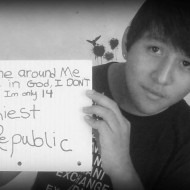
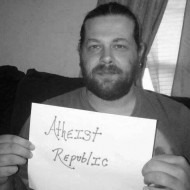
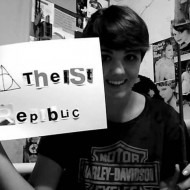


















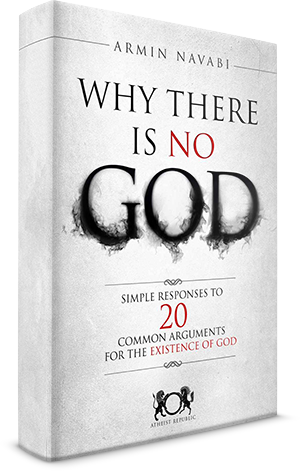
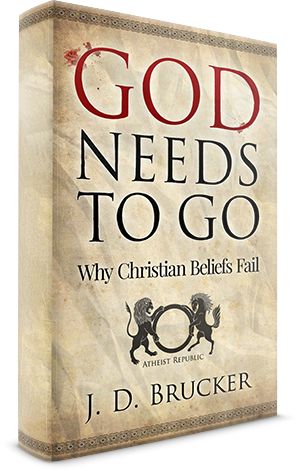

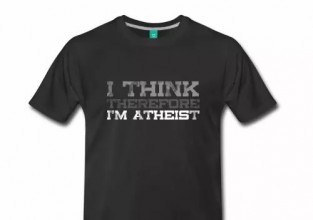

In simple license to enjoy your life in Peace by loving everyone.
We are creatures who frequently use words for communications. Because of that, we have the choice to share with those with whom we are communicating, our definitions of the words we are using or assume their definitions are similar enough to our own to forego that exercise.
What words we use to describe our atheism can be, and often are, quite varied. For me, 'lack' doesn't carry any intrinsic negativity and does, indeed, mean 'without'.
We are each welcome to use whatever words we think most appropriate to describe who we are. To ask a population (or in this case, a website) to adjust their definition to match one's own, seems a bit over the top and certainly not, in the grand scheme of things, something high on the list of problems to spend a lot of energy addressing.
to be clear, i'm not asking anyone to do anything other than explain why a definition that employs the word "lack" is one that ANYONE should adhere to or use. you say that FOR YOU (as with the person i corresponded), the word doesn't carry any intrinsic negative value, to which i can only reiterate that YOUR (or MY) personal response to the word is not at issue. what is is that the word, in common parlance, is used to reflect not merely being without something, but to be DEFICIENT as well. MOST people who use that word use it to convey a deficiency of something.
that YOU don't think it's an issue worth addressing is interesting since you took the effort to address it. (i assure there are any number of issues being addressed in these board sthat i don't think are worth addressing and i'm not addressing them.) which serves MY point that words indeed do MATTER. the words we choose to define OURSELVES not only describe but help to SHAPE our consciousness.
i submit that using a word that, again, in common parlance, conveys to be deficient in something, is to do ourselves (the "community" of atheists, that is) a disservice and possibly an injury, whether we are aware we are doing it or not.
if the dictionary defined african americans as "lacking european ancestry" or "lacking white skin", i feel comfortable in assuring you that the african american community would take exception to it. they may not picket, boycott or otherwise demonstrate, but they would find that definition objectionable. and they would be right to do so, not because it merely says we don't have european ancestors (which is inaccurate), but because it implies that there is something negative about not having european ancestry (which is also inaccurate).
so, please, feel free to use whatever words YOU like for YOURSELF, but don't tell me it doesn't matter. it most certainly does.
one more semi-tragic irony: why is that the only people who respond to what i'm saying the way you do are ATHEISTS? believers seem to see exactly where i'm coming from. even if they also want to persist in keeping the word "lack", they understand why i want to do away with it. why is that?
Are you formerly a theist? If so, perhaps the reason why they understand you so well is because you share a similar underlying paradigm. Just saying.
Personally, I don't have a problem with the word lack in this context, though I do overall have a hard time swallowing the idea that I should, as a *person* be defined by something I *don't* do. To me, calling myself an atheist is only useful when contrasting myself to theists.
Outside of that very small space in my existence, atheism doesn't really play a part in my life, nor should it in my opinion. I've got a multitude of more concrete traits :)
You should see the article I wrote on the matter: What Is Atheism -- Distinguishing Atheism From Agnosticism.
I would provide a link but, alas, I am on a phone.
i tried to find your article online, but got no results.
It's on this website. Just surf through the Debate Room.
I definitely understand where you're coming from. We are probably about the only "group" that can be defined by what we don't believe. It shouldn't even be an issue. The fact that I don't believe in Allah really isn't any more remarkable than someone else's non-belief in the Loch Ness Monster.
Our culture forces us into this awkward position because deity belief is the dominant mindset. Believers reinforce their view with social themes like, "Faith is a virtue." But faith is the poor substitute you are forced to settle for when you lack knowledge. Anytime a lack of knowledge is touted as a positive attribute, societies will suffer for it.
You don't see people grouping around the fact that they don't believe in leprechauns. The obvious reason is that there aren't a lot of leprechaun believers trying to change laws to match what they think leprechauns revealed to them or trying to put pot o' gold theory in science classes or spending millions on buildings dedicated to leprechauns. If all that started happening, I doubt it would take long for leprechaun non-belief to be a distinct basis to form an association. Associating due to non-belief only arises as a reaction to association and political activity around belief. Lose the socio-political activity centered around belief, and the need for looking after distinct needs of non-believers becomes moot.
Perhaps someday we will reach the point where those who hold such beliefs are the minority, and being atheist will become socially equivalent to being "aleprechaunist" - not a noteworthy distinction at all. We are generations away from this, IMO, but I believe the day will come if we can survive as a species.
first of all, i sincerely thank you for, at least, seriously considering what i'm saying. phew! ;-)
and i agree with you. atheists are often in a forced position within the dominant (believing) society of having to distinguish themselves by what they are not. i suppose that that, at least in part, accounts for other terms like "free-thinkers", "secularist", "humanist" etc., although i'm sure those terms also refer to things that are not "just" about belief.
Never really thought about it that way but I think your right! I guess I would like to consider theist the one who lack their gods, hence why they feel a need to create one or borrow from gods created by others.
Personally, I would define myself as someone who thinks the gods of man are not real but rather made up. I have a problem with people saying atheism is a belief.
Though I have never, considered myself to be lacking I have been guilty of defining even myself as someone who lacks a God as short and easy way to define myself to theist but I after reading your thoughts will try mybest to define myself differently from here on out. Thanks for weighing in here,
thank you for "getting it". again, i agree that people should be able to define themselves however they like. i just think we should THINK (as i expect anyone who calls him/herself an "atheist" to do) more carefully and deliberately about the words we choose to do it with.
after all, if we expect/hope/want/teach believers to more carefully examine the dogma/doctrines/articles/litergy, etc of their faith, we should, at least, TRY to make the alternative somewhat attractive (eg, "free of belief in god or gods") and not like a deficiency ("a lack of belief...").
but i'm not trying to foist MY definition here, only start a conversation about the other one.
thanks again.
I often put a lot of thought into the way I structure my speech patterns and at one point I was thinking I wanted to write a book called concrete thought for solid planning.
I am not sure if you have seen "The Secret" though its available on Hulu . I see things differently than the The Secret puts thing forth but still I see some truth in the message it tries to put out there. If you have not seen the secret I have found the link http://www.hulu.com/watch/235701 it appears there are a lot of theist fans for it. I think the its important to solidly define things and get the whole negative speak part but think The Secret goes to far when they try to say image and say to yourself checks will begin to appear in the mail and they will.
I am all for dream boards but gotta say if you want something though it is healthy to keep a positive mindset and attitude Yes doing so will help you spot opportunity better but the best way to achieve your goals is to stay focused and work for it.
Anyways, the reason I bring all this up is to say I think what your saying falls under the part I agree with The Secret on which is to say you can only define something by what it is. Negatives make no sense, lack is a negatively charged word.
What I am saying in short is, we should try to define Atheism by what it is and not what it is not or is lacking.
I am sorry if this is yet another affirmation while your looking for some debate but it is important to keep in mind that debate between two or more people who have yet to determine and come to agreement on what all parties feel is rarely productive.
i get you.
i'm really only interested in debate insofar as someone says something i disagree with. ;-)
as for "the secret", i'm not directly familiar with it, but i've caught whiffs on the periphery of Oprah-philia among acquaintances, etc. i can only say that while, as i said above, i'm absolutely positive (and it seems obvious) that words have an effect on consciousness/mindset/attitudes, etc. and thereby on how we behave in the world; i am dubious, to say the least, that they have a material effect in the world aside from human agency. in other words, there is such a thing as, for instance, "fighting words" (ie, words that, in context, could instigate conflict or other behavior), but there are no words (nor thoughts, for that matter) that, in themselves, change the physical world. in OTHER other words, prayer is not enough to actually DO anything. ;-)
"in OTHER other words, prayer is not enough to actually DO anything.
Exactly! This is what I was eluding to. I was also trying to put prayer in line with words and mind framing and give merit to the sense that it can feel like its working while prayer alone, words, thought or positive thinking "in themselves " will have material effect as you say only with the aid of "human agency."
and oh yes!
"we should try to define Atheism by what it is and not what it is not or is lacking"
i TOTALLY agree with that! frankly, i'm a little weary of so much atheist carping about the (myriad!!) wrongs of religion and the religious. don't get me wrong: there's plenty of fuel for that fire. i just wish we'd take a little energy away from talking about what we're against and talk a lot more about what we're FOR.
Now that we understand or get each other and seemingly agree we are free to try and look at things objectively.
Lets look at what CyberLN said above when they said,
"For me, 'lack' doesn't carry any intrinsic negativity and does, indeed, mean 'without'." - See more at: http://www.atheistrepublic.com/forums/debate-room/definition-atheism#com....
I think this along with what you said above in the original post deserves some more attention,
" So, in fact, i agree that MY personal negative association with the word "lack" IS irrelevant.
I am talking about how MOST English speakers use it." - See more at: http://www.atheistrepublic.com/forums/debate-room/definition-atheism#com...
Since I have already laid out my stance and made clear we agree I will just state the following. People are free to think for themselves and and express themselves in any way they choose. (I know you agree with me up to here but stick with me for a bit) How the world tends to reflect itself upon us tends to mirror our own associations whether they are positive or otherwise.
CyberLN sees no intrinsic negativity in the word "lack" though it does mean without while you admittedly harbor negative association with the word. To him it is just a word with a meaning and the meaning carries no fight or negative association. I however do see it as an important issue for the some of same reasons you do all the while I fully understand how you feel as you put forth.
To me it's important to define things in ways that make sense and as you stated above you agreed me when I said that "We should try define Atheism by what it is and not what it is not or lacking" that being said the reason I bring up "The Secret" is I wanted to illustrate my belief that further puts me on your side because where I agree with The Secret is where it says negative words are empty and don't register or make sense to the human brain.
Negativity does not store properly and leads to confusion. Lack is such a word to the human brain. This would be stored in the brain which stores memories in in image sound taste and smell has no way to store negative words. One who lacks god would instead be translate to the brain as "a person or one who god" and all the things the brain associates with these things. As the brain has no way to remember the word lack other than just as a visual or audio representation of the word. the brains can't make sense of a negativity.
In regular conversation negativity leads many people to have difficulty getting their point across to others. As an exercise, you can imagine a dog but try to imagine no dog. what you will get is everything you imagined with the dog minus the dog.
CyberLN seemingly finds the issue of the word lack a personal issue with your association with the word and feels it to be going out of bounds to try and get someone to change how others word their statements. I can agree to a certain extent but like you I am aware as to how wording can be used to convey certain subtle or subliminal thoughts in regular use whether intentional or not.
I see how choice of words used can lead to shaping the way society looks upon things. I see your point and how the word lack, conveys the image of a shortness of being whole or a deficit. But will say as someone who is able to see and understand all this it is my job to work on finding better representation for my self and the thoughts I wish to convey just as it is important for me to reword what another is saying if they do not understand or have this concept down into words that make more sense. In doing so, I think the world could be a better place at least to me. PS I am aware that I need further work in this direction and am grateful you joined the forums and put your two cents in as it helped to serve as a reminder for me.
I'll leave this how it is for now and see if this is something you would like to get deeper into.
Since you seem to like irony, as another exercise try to imagine God and when your are done try to imagine no God,
While we are at it though, I will point out that the word Atheist kind of in and of itself does convey a lack of deity. Perhaps it would be better to find an entirely different word to express our point of view that theist have a a false or made up deity. Perhaps Oppotheist err that sounds too confrontational. Maybe let get rid of the theist part too. How about Evidist, Proofist or Provist as in those who believe in so far as there is enough evidence to provide proof. Any suggestions?
okay,
boy, there's a LOT to unpack here. not sure i'm up to it now or EVER ;-)
first, i've heard much of what you say about "the negative" (if i can put it that way) before. in fact, my preference for "free" instead of "lack" comes, in part, from discussions i've had on the subject.
i also have had an uneasy relationship with the word "atheist". in fact, i only started using it as a shorthand way to tell theists where i'm coming from. however, unlike (sorry!) "lack", the prefix "a-" does not literally mean something negative, even in 2nd or 3rd definitions in common dictionaries. it literally means "without", again, unlike "lack", which CONNOTATIVELY and, in some dictionaries, DOES refer to a deficiency of something. so, you could be "apolitical" or "ahistorical", but not be "lacking" in thinking about politics or history, only that you are NOT political or historical (again, if you'll allow me to put it that way!).
which is why the attachment of some to the word is so galling to ME: there is nothing inherently "lacking" about being an atheist. it literally only means "to be without a belief in god or gods". if all or most dictionaries only said THAT, i would have NO argument, but they don't. most regrettably, i might add, on a site that calls itself "the atheist republic". who would want to be a citizen of a place where people, by virtue of being in it, see themselves as "lacking" something?
So just to make things crystal clear, all your are really saying is you really have no problem with the word Atheist but rather have issue with how people including this site choose to define it as lacking of something but you would be happier if they defined it as without religion, theism or God? Please correct me if I am wrong.
yes, insofar, as the word is defined.
however, i also agree with you (if i understand you) that defining oneself by what one is "without" is, in itself, problematic. that is why i have also always had a problem calling myself an "atheist". but it is a handy shorthand when talking to theists: they can easily decide what kind of conversation they want to have with me, if at all. ;-)
Part 1: Regi, when I read your initial post, I heard, perhaps, something you may not have meant. When you described your email exchange with the board admins, it read, to me, that you were requesting the removal of the word 'lack'. If that is incorrect, I apologize. If that is what your intention was with your email exchange, then I stand by my original comments.
Part 2: We ALL use words/phrases that can translate in many, many different ways. Word meanings are just about as varied as fingerprints. There are words/phrases in this string that I find distasteful, don't use, and carry some negative meaning to me. Oh well...I get that they may not feel that way to the speaker. C'est la vie.
Part 3: Yes, Z! The word Atheism translates to godless, or without god/s, or lack of god/s, etc. That does not, however, feel in any way, shape, or form, negative to me. It is simply a statement of fact. I also lack a tail, lack webbed feet, and lack six nipples. Perhaps the difference in how the word 'lack' reads to me versus someone else, is that if I lack something (like a god or a tail), it doesn't mean I am one who is lacking overall.
Part 4: I see no difference between saying "I lack the belief in god/s," and "I do not have belief in god/s." I just cannot come up with any clearer way of saying it to someone when the subject comes up.
i was not formally requesting them to change the wording of the definition (although i wish they would), but i was trying (as i am here) to have a discussion about why something that calls itself "the atheist republic" would persist in using it. it's MY experience that when people, who not only purport to value reason, but actually do value it, think about what they're doing, they revise their points of view, behavior, etc.
to me, the exchange was greatly dissapointing [sic], in that, whoever i was corresponding with, did not seem to want to even consider my point of view ("...because that's what the dictionary says.").
yes, we all use words that carry different meanings in different contexts. However, i maintain, and i have yet to be contradicted, that the word "lack" in COMMON usage conveys a DEFICIENCY of one kind or another. that you (and most humans) "lack a tail" is, indeed, literally true, but how often, whenever the subject should arise, would that sentence be formulated. i submit almost NEVER. most native speakers of English would simply say that you "don't have a tail" or "people don't have tails" or "don't have six nipples", etc. IN MOST CIRCUMSTANCES, "lack" would only be used to convey that you were missing something you should or ordinarily would have: if you're bald, you lack hair. if you're suffocating, you lack air, etc etc etc.
further, i submit that when MOST people hear you say that you "lack a belief in god/s", whether you INTEND to convey it or not, what you are saying TO THEM is that you are without something that you VALUE, as if you "lacked" money, for instance. when you tell them that you simply "don't have a belief in god/s", that window for misinterpretation (and i take it, it IS a misinterpretation, is it not?), is closed off.
again, i fully understand that YOU don't see it that way. perhaps many others don't as well, but not the MAJORITY of others, because, again, in COMMON parlance, that is the way the word "lack" is used.
and i can't come up with a clearer way of saying THAT. at least, not yet.
Lack of -shmack of...I say to theist when they talk about atheists redefining the meaning. I don't believe there is....I believe there is no...whatever. ''Lack of'' is Not redefinition. It's just a phrase. The point of rephrasing is to make it clear -more obvious where the burden of proof lies.
Yes, dictionaries are not ultimate authority. Definitely useful but can be outdated or simply have mistakes. You don't look for the meaning of: Jew -in 1939 German dictionary
With money & food it does sound like deficiency. (lack of money but not poor, lack of food but not hungry) But in other examples, like with history of mental illness in family, or genetic deformities ....lacking certain chromosome doesn't sound like deficiency. Or virus (''god virus'')
"But in other examples, like with history of mental illness in family, or genetic deformities..."
please see my response to this point above re: humans having tails or six nipples, etc.
I enjoyed the subject of conversation on this topic and feel it is an important one. I get the whole shorthand for talking to theist thing but do feel the word Atheist could use a makeover. I is the label given to us by society not chosen by us. I agree with the notion that lacking is a poor choice of word when it come to defining Atheism and still I have some qualm with the word itself but feel as though there has been no better word or definition put forth by society which enables us to as quickly summarize our belief that god or gods are fictional caricatures created by man.
I understand things In a way that makes me wish to more positively charge the meaning and description of what I am in a more solid way. Even the word agnostic which I feel better defines me still falls into some of the same qualms.
Being defined by what we don't believe doesn't really bother me as much as being put into a category of its own demise.We are still looked down upon by the Christians who think they know better.
I whole heartedly agree, the whole dictionary explanation for atheism is stupid. We should push for the idea that atheism is less "a lack of belief in a god" and more the conviction that proof is needed for something to become fact. This would both make us (too some people) look more openminded and make atheism harder to argue against, since it would be easier to steer the discussion into the realm of proof and facts, every rational persons haven. This is not possible when we, if twisted are categorized as "belivers", that is after all what the dictionary says, it says we have a belief equal in legitemacy as The Islamic or Christian belief.
In short i feel like the definition of atheism should be changed, it should be less of the "having a belief (or lack)" and more a way of though, that nothing can be taken as fact untill we have proof.
I often hear theist express a belief that atheist are closed-minded. I find this funny in a sense because I'm the one of the two of us willing to bend my belief. I would be open to seeing things differently if they prove the existence of their god. The minute we disagree we are often labeled closed-minded. While they continue to believe in their god or gods as the one true way things are, they tend to block reasonable arguments and avoid difficult questions even ignore evidence that brings doubt to their belief.
Perhaps the definition of Atheism being a lack of belief in in gods is partially responsible for the perception that we are the closed-minded ones. Perhaps its this definition that leads them to think if we could just open our minds we could just believe and then we would have all the evidence we need to believe in their god or gods. They seemingly believe this void caused by our lack or insufficient belief would be filled if we could see things the way they do.
I define Atheism as Against (a) Theism (theism) a+theism = atheism. People who are atheist can be of this positions for a plethora of reasons. To me an agnostic person would be someone who takes the position that both theist and atheist both lack sufficient evidence to prove or disprove one another at least in relation to the subject of the existence of a god or gods.
Personally, I myself am an agnostic atheist. As an agnostic person I feel there is lack of evidence either way. As an atheist, I feel with lack of evidence either way, people should be only be spreading as truth things that have supporting, constant, and tangible evidence for. This puts me against theism not as a whole but in so far as some of the things theism tends to do. I am willing to debate the existence of a god or the validity of any number of theistic organizations, I am even wiling to defend the right of person to believe what do in terms of theistic belief, but I turn against theistic groups when they try to tell us what to do pushing their beliefs on society at governmental levels or tries to push its belief to our children. If you want to your kid to attend a school which teaches about your belief home school or send your kid to a private school but keep you belief out of our public schools and politics. Stop treating us like we are evil and incomplete for not having your belief. This last bit is why I am against defining atheist as someone who lacks anything. Before accusing me of lacking something I challenge you to first prove it exist enough to be lacked in the first place.
A better definition is "rejection of belief in any deities". "Lack" (usually/always) implies a deficiency. Few, if any, sentences (not about religion) can be constructed in which "lack" does not indicate (nor strongly suggest, nor cannot be read as) a deficiency. Atheism is not a deficiency.
Even defining atheism as "absence of belief in any deities" is inadequate, because it is TOO broad. There are all sorts of things without a belief in deities, eg: infants, ants, rocks, mathematics, stamp-collecting. It is not "absence" of belief that makes something an atheist or atheistic, it is the personal rejection of belief. Neither biology nor Darwinism is indubitably atheistic, but Marxism is (because it rejects theism). Though belief in any deities is absent from mathematics, Darwinism, stamp-collecting, ants, carrots, and rocks, maintaining they are atheistic is being susceptible to a false consistency.
Just as it is bogus for theists to claim infants are theists, so too is it bogus to claim infants & zygotes are atheists. Atheism is a conscious position; the only implicit atheists are agnostics who do not realize they have rejected belief, not merely suspended it.
"Disbelief" is not the same as "unbelief". Disbelief indicates some kind of difficulty believing something.
I agree that atheism may not be a simple matter of choice, but atheists ought not LACK the courage to recognize that it is a personal judgement about theism.
The words atheists use to define their position ought to be as unambiguous & UNASSAILABLE as possible.
I am opposed to both "LACK" and to "ABSENCE" as part of the definition, "LACK" being worse. I think "free of" suffers many of the same problems (as well as, not having a NPOV, would not be acceptable to dictionaries/encyclopedias). Atheism is a position, not a LACK of having a position.
Pages